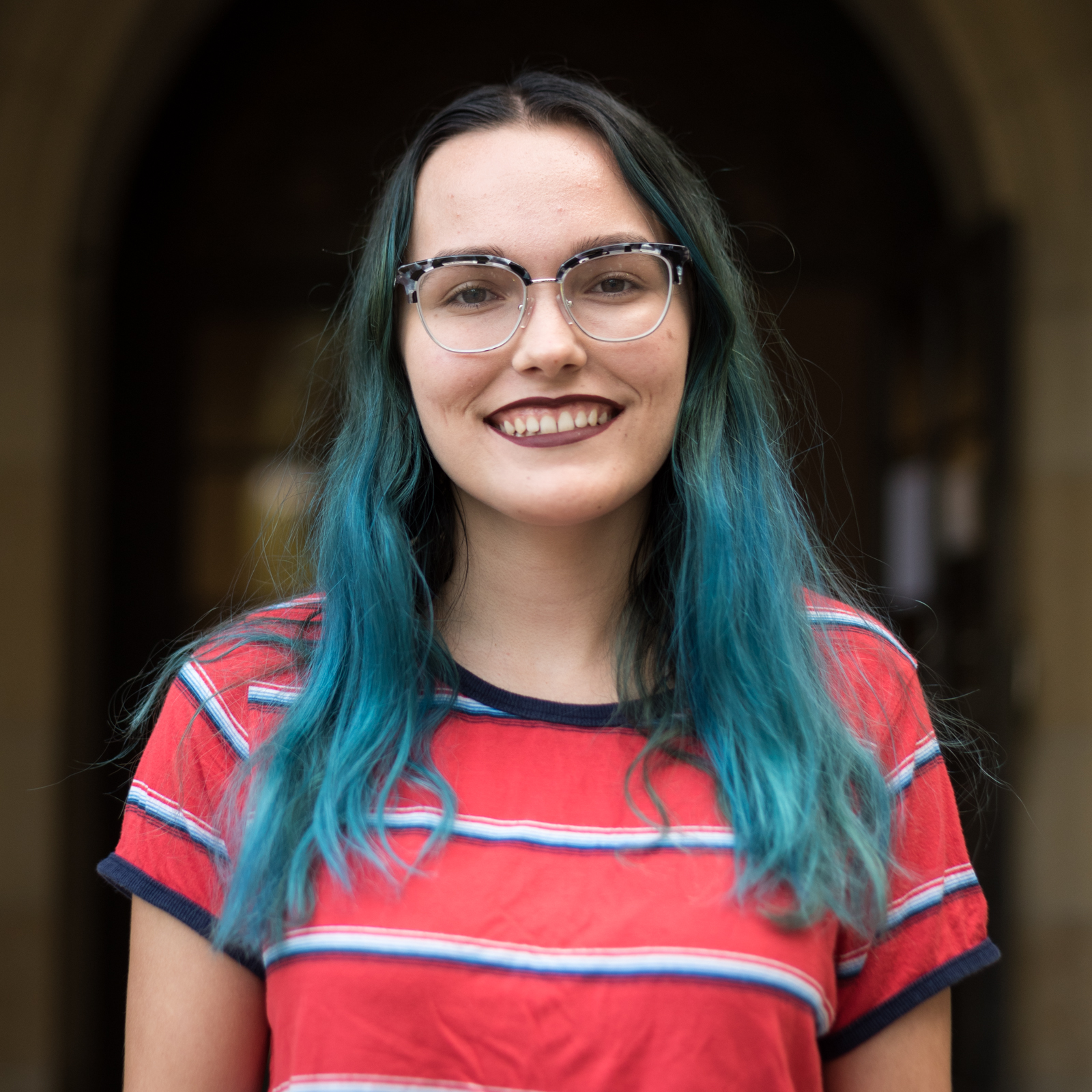Q&A: Writer-director Patricia Vidal Delgado talks new feature film based in Compton

(Courtesy of Sundance)

By Kristin Snyder
Feb. 2, 2020 10:30 p.m.
This post was updated Feb. 3 at 10:03 a.m.
“La Leyenda Negra” grapples with colonial legacies new and old.
Written and directed by alumna Patricia Vidal Delgado, the black and white film follows Aleteia, an immigrant from El Salvador who joins an underground anarchist group at Compton High School. The film explores how she navigates her Temporary Protected Status as well as her burgeoning relationship with a girl in her class. As Aleteia utilizes her voice as an activist to remain in the United States, Delgado said the character represents the intelligence and potential of young girls like her.
Delgado spoke with the Daily Bruin’s Kristin Snyder about the switch from short films to feature films, working with nonactors and the stigma surrounding Compton.
Daily Bruin: What was your initial inspiration for the film?
Patricia Vidal Delgado: I shot a short film in Compton before called “The Hood.” I had worked with a professional actor who is also a teacher at Compton High School. I really loved working with him and I loved filming in Compton. He is the head of TV production and media at Compton High, and he said, “Come speak to my kids one of these days, because a lot of them are interested in being in front of a camera.” So I went to see his students and I just fell in love with them. I fell in love with their stories, with their energy, and a lot of them are Latino kids, so they’re going through what every other American teenager goes through, but many of them also have immigration statues that are being revoked by this administration.
DB: What is it about Compton that continually draws you to base your stories there?
PVD: I think that it has to be the openness of the people there. Compton suffers from a lot of negative stereotypes. The kids I’ve spoken to, I’ve been told that when they go into job interviews, they don’t say they’re from Compton. They just say they’re from South Central (Los Angeles) because the stigma is still persisting. There is crime in Compton, that can’t be denied. But what’s amazing to me is how positive and how sweet and how generous these kids are despite that negative stereotype that pervades their city.
[Related: Documentary analyzes director’s complex family dynamics with unique flashback style]
DB: Was there anything particularly challenging about creating “La Leyenda Negra?”
PVD: I did work with nonactors. They were all pretty much beginners. I had worked with nonactors before. … I think it would have been more challenging if I hadn’t had that past experience. But it was a challenge that I really relished, because I found the more time I gave the kids, the more attention that I gave them, what they would give to me was just phenomenal. It was really worth the time and attention I spent with them because what they were then able to do was breathtaking.
DB: “La Leyenda Negra” is your first full-length feature. What was the process of shifting from working on short films to a longer feature film like?
PVD: The stamina that you need to go from a short film to a feature film is considerable. I think the fact that you’re so immersed in production, in pre-production and then the shoot, … you really don’t have a lot of time to second-guess yourself. You just have to trust your instincts and go with your gut. With a short film, you might have a little more time to think, “Oh, could we do this differently?” With a feature, it’s very much one and done.
[Related: Documentary, Q&A aim to discuss South Asian representation in American culture]
DB: What about this story made you think it warranted a longer format?
PVD: I think it was the complexity of the character Aleteia. She’s so multifaceted because she’s not just your typical teenager. She’s very politically outspoken. She’s an activist. She’s queer. She’s TPS eligible. She deserves a bigger canvas because she is larger than life.
DB: What do you want viewers to take away from the film?
PVD: For me, it’s (for) the viewers who have never heard of TPS. People who maybe have never even thought about it because it doesn’t affect them, their family or anyone in their immediate circle. They go in to watch the film, and they look at someone like Aleteia, who is brilliant – who is intelligent, who is academically minded – and think that it isn’t really fair that she should be denied her right to an education just because of her immigration status. And then maybe that will encourage people to do some research, it will raise awareness and maybe people will think differently.


